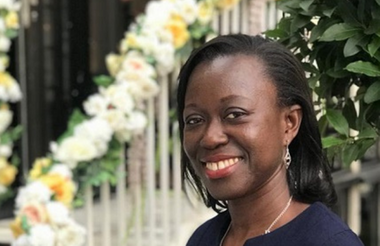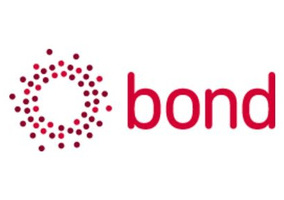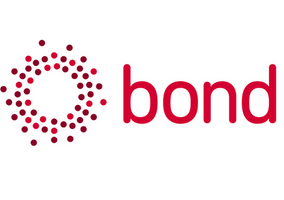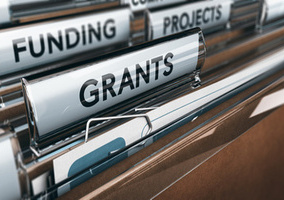“I no longer ask myself, what is the point? I ask myself, what is the dream?” These were the opening words of Françoise Moudouthe, chief executive at the African Women’s Development Fund, at Bond’s Power in Development conference last month.
As co-chair, I found her words to be a poignant start for the two days of engaging, robust, and sometimes uncomfortably candid, conversations. We talked about our international development system, the role that the northern ecosystem (INGOs, funders, governments) play in it, the inequities associated with this role, the emergence of the sector itself, and the need for a redefinition and repositioning of the sector.
In the last few years, the international development sector has increasingly held the spotlight with uncomfortable and critical questions about its relevance and, by implication, that of INGOs. We did not shy away from these discussions – in fact, the hard questions were necessary and welcome.
In all 12 sessions, the complexity and diversity of thought, feelings and opinions were clear – such as in the ‘Harnessing our collective power to advance racial equity’ session, which depicted the ‘othering’ of a middle-class African (or diaspora) woman who works with an INGO but whose voice is not heard because she does not ‘represent’ the poor, pregnant and powerless African woman who has the attention of the international development sector – while also being ‘legitimately’ represented by the middle-class white person who is often the face of the northern INGO.
The ‘Decolonising economic development: what does this mean in practice?’ session provoked passionate debate. While others called for a redistribution of wealth and the gains from trade, others questioned where trade is happening, who makes the final decisions, and who holds the power. The repercussions of the global north’s role in perpetuating the negative impacts on our environment, while the global south bears the brunt of it, did not go amiss either. INGOs were thrown a challenge – as one participant put it, ‘to shut down or to prioritise challenging their governments in the global north over trying to “fix” the inequity impact on the south’. Bond CEO Stephanie Draper said this is a ‘broken system’ which we urgently need to ‘decolonise, decentralise and decarbonise’.
We asked fundamental questions about global economic factors that have, over decades, limited meaningful development in the global south. The global financial and trade system are dominated by debt financing in the US dollar reserve currency, in which most commodities and goods are priced. The impact and resulting debt created in the global south is not insignificant and cannot sit outside international development dialogues. Even more crucial is the fact that this status quo may not be permanent: some countries are developing alternative systems that could chip away at the dollar’s dominance, such as India’s alternative payment system to facilitate trade with Iran, following US sanctions on the latter, and similarly the development of an EU back system to facilitate trade with Iran, without sending money across borders.
Alternative systems
To be brutally honest, these discussions also include the development of other alternative systems to international development (and the aid infrastructure). The likes of charities such as Give Directly, which offer cash transfers, could challenge the sector’s model of implementation through INGOs. Take, also, the rapid economic development in India and China in the last two to three decades: China’s development model is ‘practicality, hard work, innovation and cooperation’, which seems to be attractive to developing countries and overall, is seen as an alternative to the Western free market-based approach, especially given the numbers that have been pulled out of poverty. How does the international development sector reconcile with this?
While we try and fix this broken system, the partnership between the developing world and China continues to grow. Understanding why this partnership, despite China’s authoritarian system, is increasingly appealing to the global south lies at the heart of why we might have a broken system. But is this a conversation that the sector is ready to have, without the moralistic finger-pointing that so often limits a genuinely open and bold dialogue? Partners in the south observe such double standards, though they are often too polite (or even fearful) to mention it.
For me, this speaks directly to the African proverb: ‘Until the lion learns to speak, the hunter will always be the glorified one’. The so-called global south has a critical responsibility in shaping its own narrative, in occupying the space and the discourse on development and in transforming its present and future, beyond the boundaries of the international development sector, with the mutual support of interested global partners.
Having worked for a leading diaspora and development organisation that has typically held a theory of development on ‘trade, not aid’, I see evidence of the global south and its diasporas and migrants (the largest source of external finance for many developing countries) in long-term, vested and unwavering interests in their own and dual communities. Should the international development sector be investing in different and alternative models – a progressive African middle-class with the capacity to drive and entrench change? Diaspora models that might be more courageous and bolder, long-term and sustainable; models that have long implemented Give Directly’s current model of cash transfers that are now viewed in the sector as especially innovative and radical?
Process as important as outcome
The process of change is just as important as the outcome and it is imperative that the ecosystem of international development – INGOs, funders, policy makers – keep an open-mind, break out of the self-imposed boundaries, engage with alternative systems, and listen actively to voices from the global south, who are redefining the sector. The so-called ‘development beneficiaries’ have a dream which may be very different to what the development agenda was set up to do. The system needs to find a balance between what they want and what we are prepared to give. There is no doubt, however, that our ‘broken system’ needs more than a few bolts and nails to hold it up. The international development sector has had several wake-up calls – we are overdue for a complete shake-up, a dismantling and a makeover; or circumstances may impose this on us.
All of us on the north-south divide need to be bold in acknowledging and letting go of what has not worked. We must continue to challenge each other positively and communicate our differing opinions respectfully. We all need to take risks in challenging other players in the ecosystem, and that means, even more progressively, northern players challenging their own. As the writer Brené Brown said: ‘To be vulnerable is to have the courage to be imperfect’.
Stella Opoku-Owusu is deputy executive director at AFFORD
Related Articles












